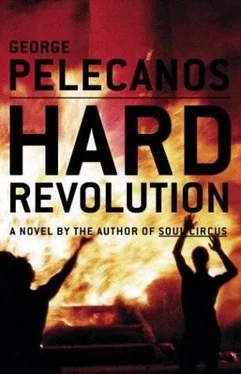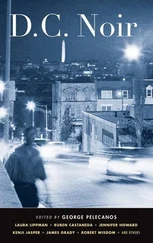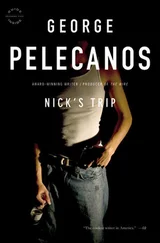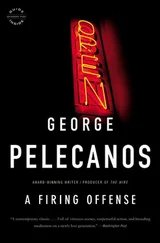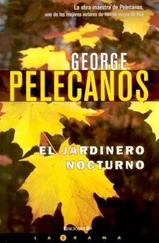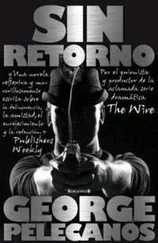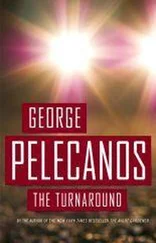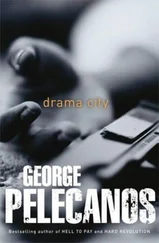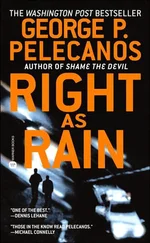“Been a rough couple of days for you, too,” said Vaughn, looking him over.
“Guess I’ll feel better when my brother’s killer is arrested.”
“You think so? You think you’re gonna feel better then?”
“What’re you gettin’ at?”
“Is that all you want? To see him put in jail?”
Strange stared into Vaughn’s eyes. “No.”
“Like I said, I want to help.”
“I appreciate it.”
“Anything new?”
Strange told him, in detail, about his afternoon. He described his last stop, at the apartment of Kenneth Willis, and how he’d shook Willis down. He told him about his lead on Jones, and the cousin he was staying with over off 7th.
“Where’s this Ronnie Moses live, exactly?” said Vaughn.
“I don’t know. I did get a phone number, though. I was planning on getting an address through the number.”
“You got the number on you?”
“It’s in my locker.”
“We’ll Criss-Cross it now,” said Vaughn. “You’re certain about Jones, right?”
“I don’t have any hard evidence. But I’m certain as I can be.”
“You carry an unregistered piece?” said Vaughn.
“No.”
“I do,” said Vaughn. “You’re gonna need to get one, too.”
Strange considered stopping Vaughn right then. But he held his tongue.
They walked together into the squad room. Some officers were grouped around a desk radio, listening to a news broadcast. One of the uniforms, a black rookie named Morris, broke away from the group. His partner, a white cop named Timmons, tried to grab Morris by the arm, but Morris pulled free and stalked out of the room. As he passed, Strange saw anguish on his face. Strange and Vaughn went to the radio and listened to the announcer repeat the bulletin.
At 6:05 p.m., central standard time, the Reverend Dr. Martin Luther King Jr. had been shot in the neck by a sniper while standing on the balcony of the Lorraine Hotel in Memphis, Tennessee.
For the next hour, the police officers stayed in the squad room, taking calls and calling loved ones, talking quietly among themselves. Vaughn went outside to the station steps to have a smoke in the night air. Strange phoned his mother, as Vaughn had told him to do. They spoke about the robbery and the awful thing that had happened in Memphis, and she told him she loved him and he told her the same thing. As he hung the phone up the announcer returned to the air.
Dr. King had been pronounced dead at St. Joseph’s Hospital at 8:05 p.m., eastern standard time. Officer Morris, who had returned to hear the news, punched his fist into the squad room wall. Strange went to the bathroom, where he could be alone.
On 14th Street, in Shaw, the news came first to a boy who was walking down the sidewalk, carrying a cheap transistor radio on a strap.
“They killed Dr. King!” he shouted to no one in particular. “They killed Dr. King!”
People stopped to look at him as he ran down the street.
AS THE NEWS spread by mouth and phone call, people began to turn on their transistor and tabletop radios, and their television sets, to get the details of the King assassination. Many inner-city residents tuned their dials to 1450, the home of soul station WOL. DJ Bob Terry, a familiar, comforting voice to his black audience, urged listeners to reflect on the news in a spiritual way.
“This is no time to hate,” said Terry. “And let me tell you something, white man… you better stop hating, too.”
After speaking on the phone with leaders in Memphis, black activist Stokely Carmichael went to the SNCC offices on 14th Street, a couple of blocks north of U, and conferred with some of the leaders of its Washington bureau. He proposed a strike that would force closure of area businesses in honor of Dr. King. He reasoned that stores should shut down out of respect, as they had upon the assassination of JFK. While the officers of the SNCC favored some sort of protest, they did not approve of such a drastic move. Carmichael, wearing shades and his trademark fatigue jacket, disregarded their wishes and left the office to begin rounding up supporters who could help him facilitate his strike.
Soon after, Carmichael and a group of followers entered the Peoples Drug at 14th and U, the site of Tuesday night’s disturbance, and asked the manager to close the store in honor of Dr. King. The manager complied, darkening the lights in the store. Carmichael then led a crowd, now grown to thirty or forty individuals, from shop to shop, going from dry cleaner to liquor store to barbershop, speaking to the owners or managers on shift, telling them all to close up shop. All complied.
The crowd then headed east on U. A light drizzle had begun, not uncommon on an April night.
The owner of the Jumbo Nut Shop, a woman, was asked to lock her doors. Ushers and box office attendants at the Republic Theater were told to terminate their first evening showing. A couple of Carmichael’s followers walked into the auditorium of the Lincoln Theater and shouted to the audience, watching Guess Who’s Coming to Dinner, telling them that their evening at the movies was done. The houselights came up, and patrons abandoned their seats.
At 9:30, someone shattered the plate-glass window of the Peoples Drug.
The Reverend Walter Fauntroy, chairman of the Washington City Council and a close confidant to Dr. King, watched the trouble begin from the second-floor offices of the Southern Christian Leadership Conference, next to the Peoples Drug. He went down to the street to talk to Carmichael and his followers, whose numbers had now swelled even more. Carmichael shook his arm from the diminutive Fauntroy’s grasp and walked north on 14th, with hundreds in tow. Fauntroy would spend the balance of the evening going from TV station to radio station, urging “black brothers and sisters” to react to their grief “in the spirit of nonviolence.” His words came too late and went unheeded.
The impromptu parade of protesters closed restaurants and businesses on 14th as they had done on U. Behind them, a trash can finished the Peoples window. Next, a bottle crashed through the window of National Liquor. Chants of “Black power,” “Kill whitey,” and “We gonna off some motherfuckers now” were heard in the night. Carmichael talked to the crowd and told them not to initiate any violence, that it would be harmful to them, as they were outnumbered and would be outgunned. He did this as he continued to lead them up the hill of 14th, where scores of mom-and-pop businesses, chain stores, and apartment houses lined the strip from U to Park Road.
As of 10:00, there appeared to be little police presence on the street. Officials were aware of the growing problem and had begun to send units down to the scene. Public Safety Director Patrick Murphy instructed officers to try to maintain order but retreat from any “imminent confrontation.”
Five blocks north of U, at the top of the hill, a woman pushed her backside through the plate-glass window of Belmont TV. A few people tried to get into the display area to take some televisions but were blocked by Carmichael and a couple of SNCC workers. Carmichael produced a pistol from his jacket, waved it, and told his agitated followers that this was not “the way.”
Meanwhile, crowds had regathered at 14th and U. As he walked south and neared the intersection, Carmichael could clearly discern that he was no longer in control of the situation. The crowd had grown considerably and its movements were erratic and unbridled. The voices of the participants had risen in anger and something like glee. Carmichael got into a waiting car and sped away. He would not be seen for the remainder of the night.
At around 10:30, the crowd broke the windows of Sam’s Pawnbrokers and Rhodes Five and Ten, both south of U, and began to steal jewelry, television sets, transistor radios, appliances, useless trinkets, and anything else that was not locked up or nailed down. SNCC volunteers tried to stop them. They were laughed at and brushed aside.
Читать дальше
